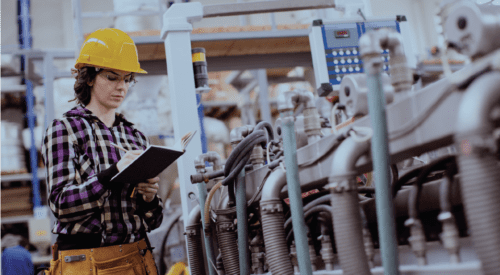
Green Hydrogen and Ammonia Imports Are Cost-Competitive Solution to Europe’s Dependence on Fossil Fuels in Heavy Industry
New RMI report details how green hydrogen and ammonia imports can help displace imported fossil fuels in European industry and shipping, if policymakers take coordinated action now
Boulder, CO – May 12, 2022
Europe can only achieve its climate and energy security goals with a rapid deployment of imported “green” hydrogen and ammonia made from renewable energy — powerful, low-carbon energy sources that can replace fossil fuels and feedstocks in key parts of the economy.
A new RMI report finds imports of green hydrogen are already cost-competitive and can substitute most fossil fuels used by European heavy industry, weaning sectors off Russian natural gas. With current and expected natural gas prices, green ammonia imports are cheaper than fossil-based “gray” ammonia and can be deployed in the shipping sector as a green bunker fuel as well as in established chemical industries.
“Every day that Europe waits to enable green hydrogen and ammonia imports is money squandered,” said report coauthor Thomas Koch Blank, senior principal at RMI, an independent nonprofit focused on transforming the global energy system for a clean, prosperous, zero-carbon future.
The report outlines the actions that European policymakers should take in expanding the REPowerEU initiative and other upcoming regional policy decisions, including creating straightforward incentives focused on infrastructure for industrial hubs, as well as supporting a certification system and import rules that prioritize low-carbon fuels.
“Promoting the development of hydrogen and ammonia hubs in key industrial demand centers — especially those where ammonia is already being imported and used in the chemical and fertilizer industries — will be a crucial first step in developing the emerging green hydrogen supply chain,” said report coauthor Oleksiy Tatarenko, RMI principal and secretary of the Green Hydrogen Catapult.
Including green hydrogen and ammonia in trade policy with renewables-rich countries like Australia, Brazil, Chile, North African nations, and Ukraine will enable imports to reach the continent as early as 2024.
“There is a significant business opportunity for these countries — one which business leaders and policymakers should be keen to engage on,” said coauthor Natalie Janzow, senior associate at RMI.
Media inquiries please contact:
Alexandra Wall, Strategic Communications Manager of the Climate-Aligned Industries Program, RMI
T: +52 55 5050 1111
E: awall@rmi.org
About RMI
Rocky Mountain Institute (RMI) is an independent, nonpartisan nonprofit founded in 1982 that transforms global energy systems through market-driven solutions to secure a prosperous, resilient, clean energy future for all. In collaboration with businesses, policymakers, funders, communities, and other partners, RMI drives investment to scale clean energy solutions, reduce energy waste, and boost access to affordable clean energy in ways that enhance security, strengthen the economy, and improve people’s livelihoods. RMI is active in over 60 countries.
More information on RMI can be found at www.rmi.org or follow us on Twitter @RockyMtnInst.